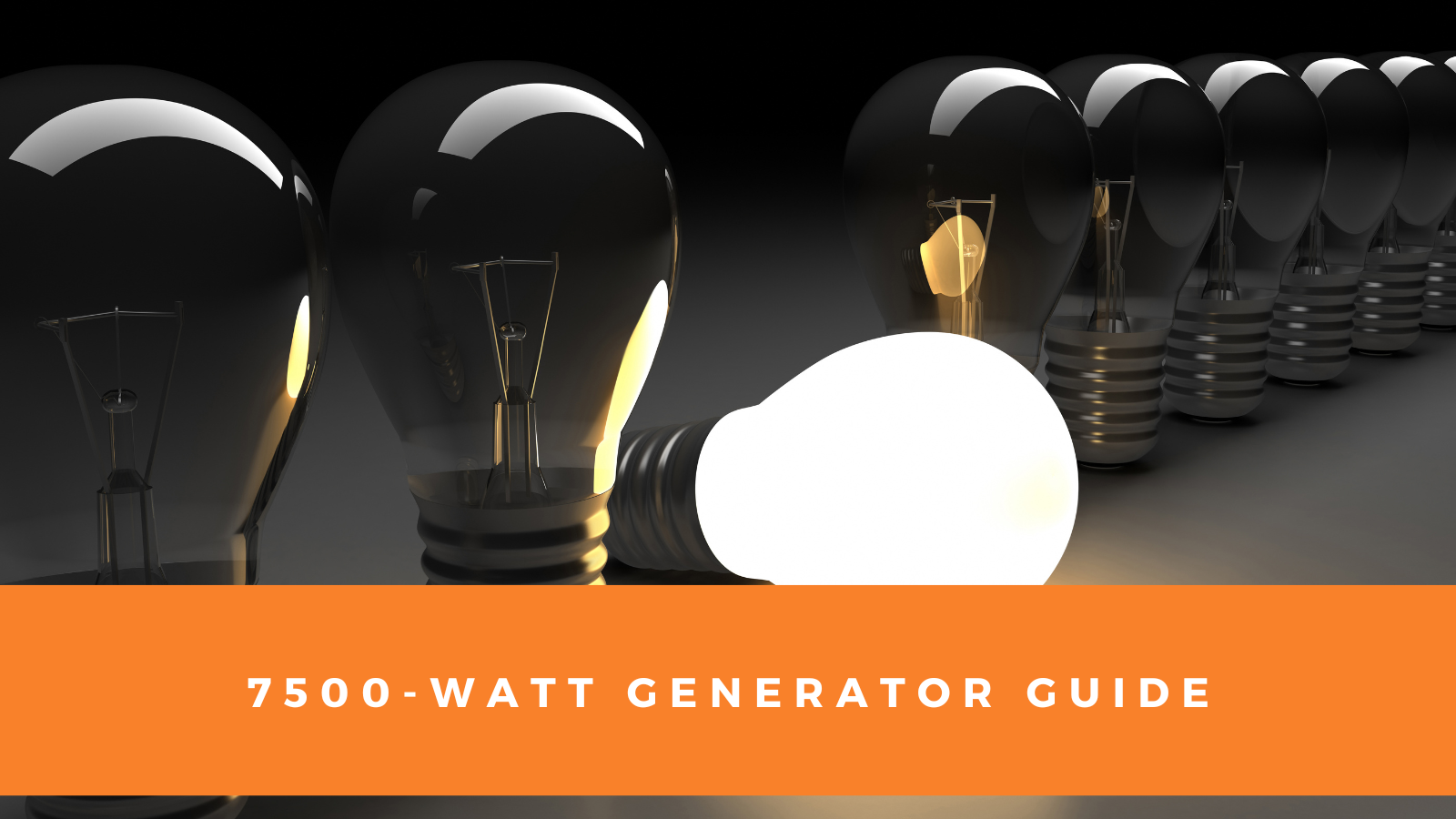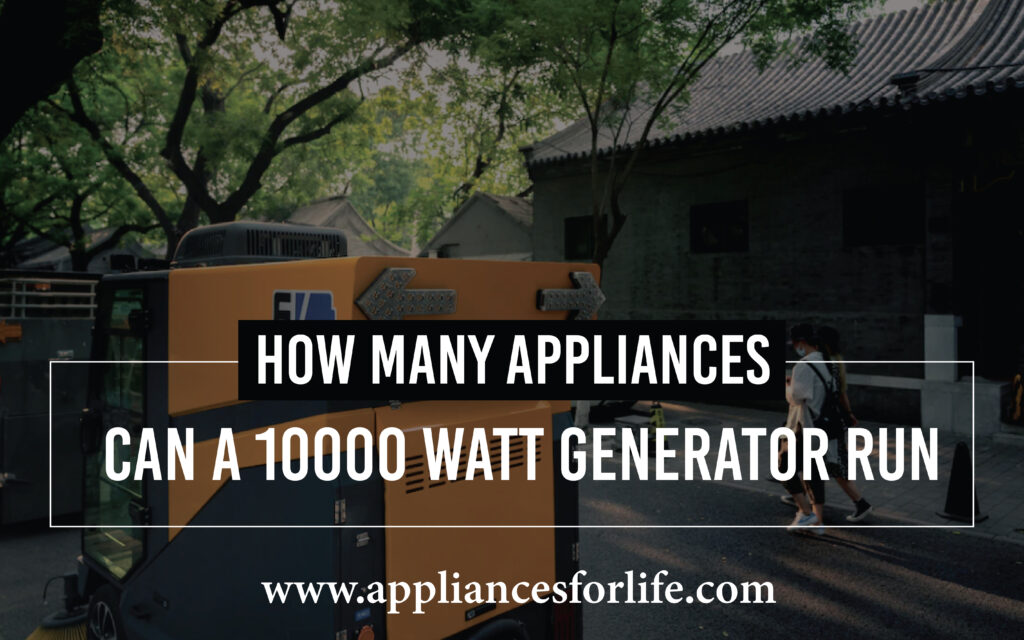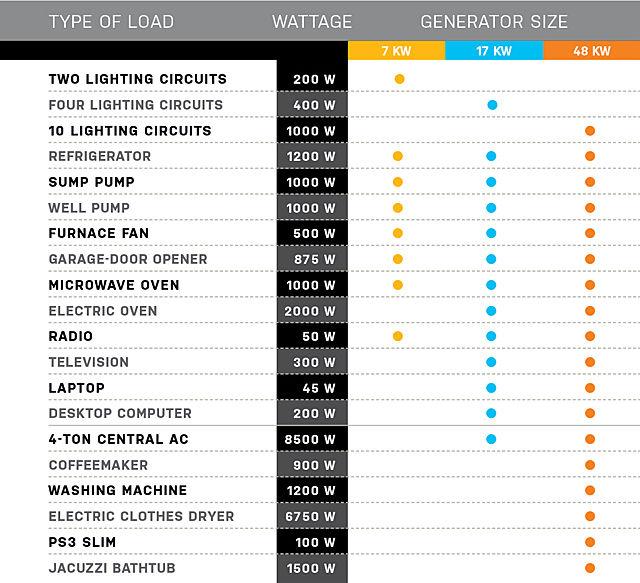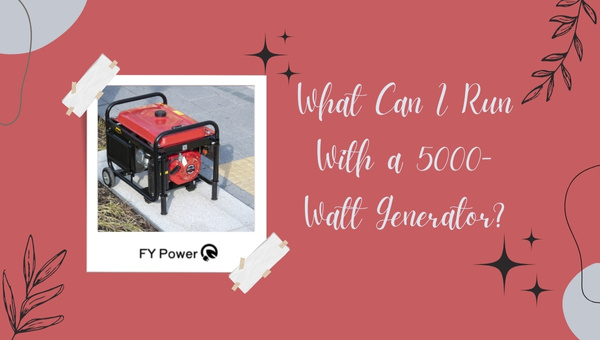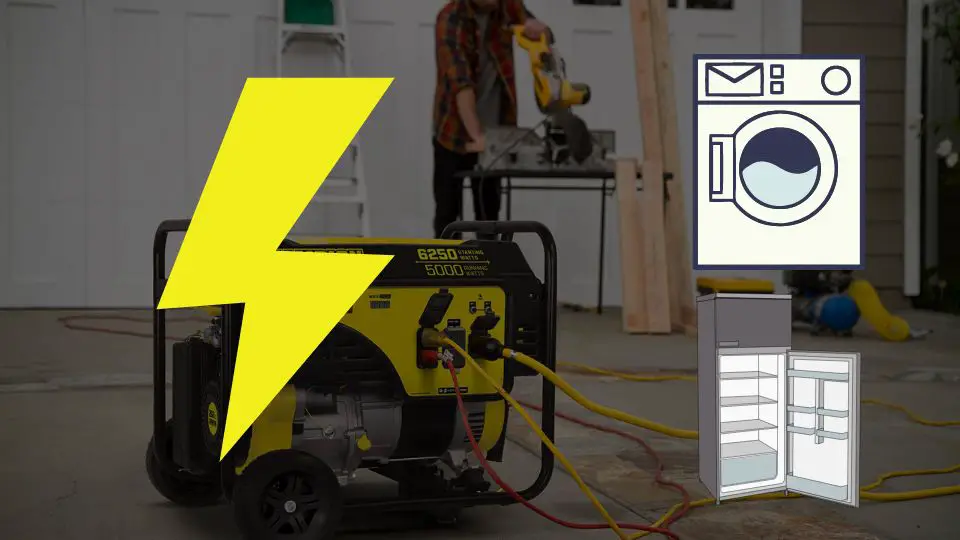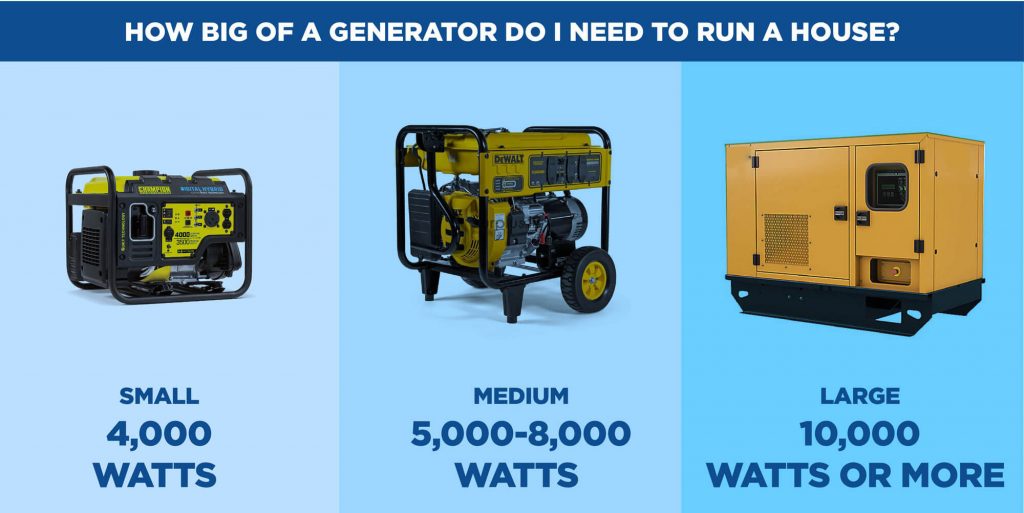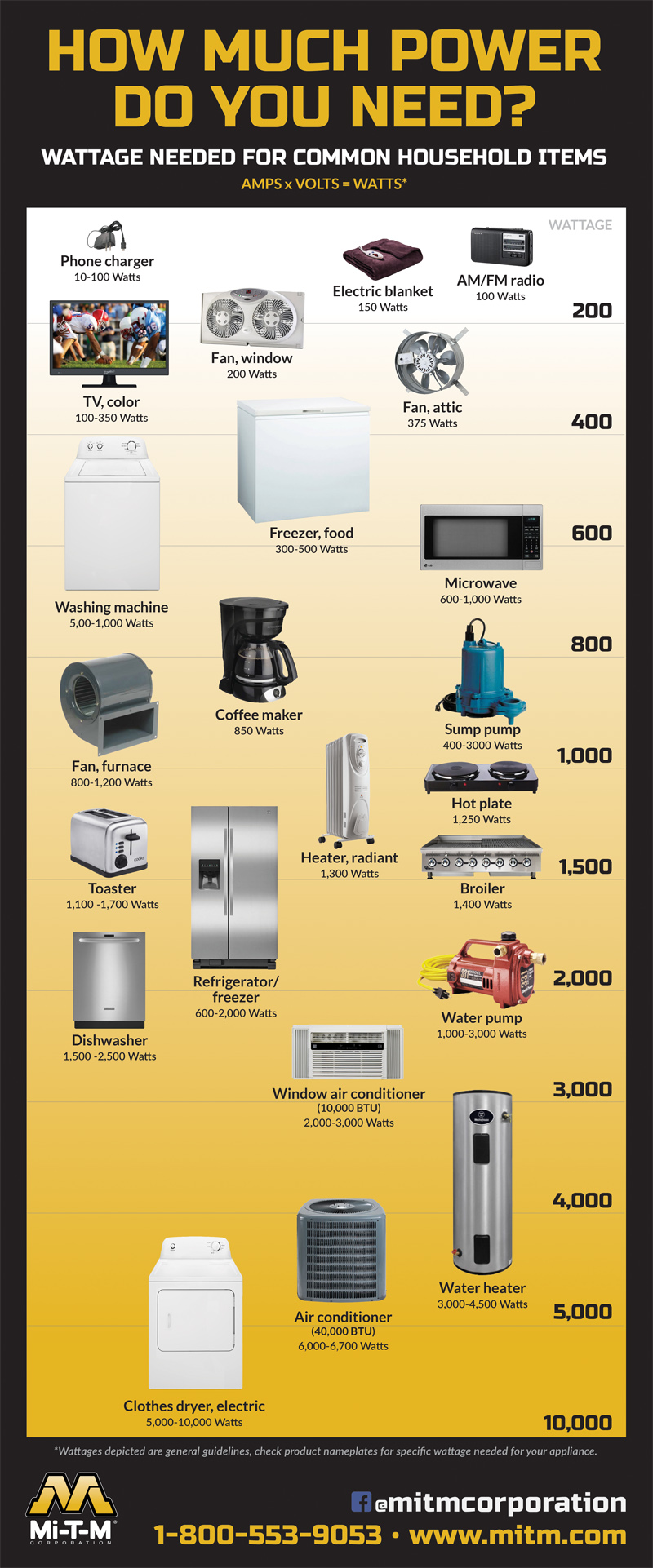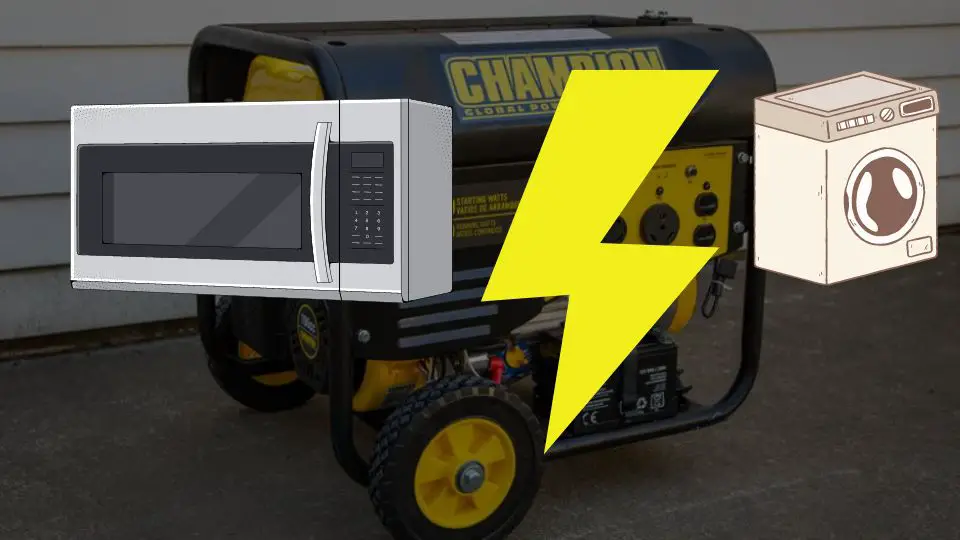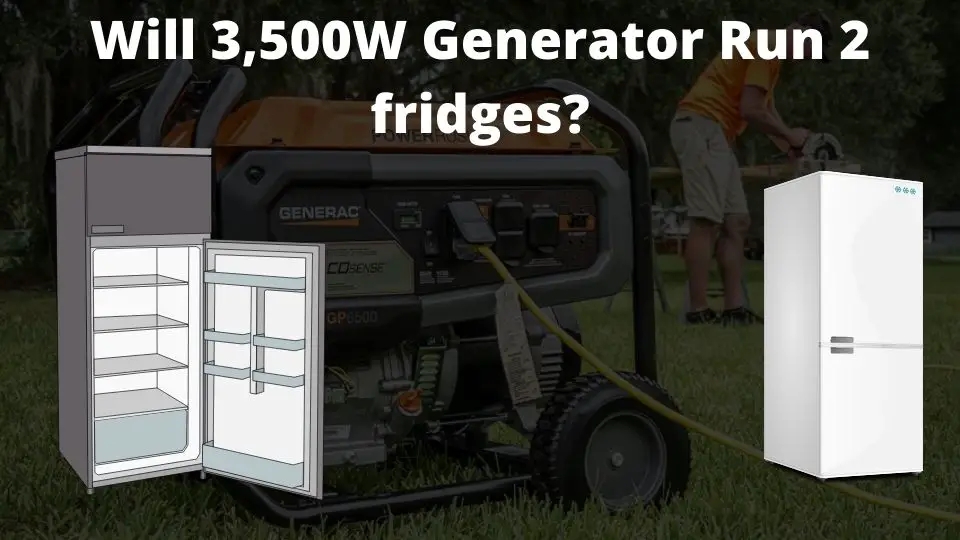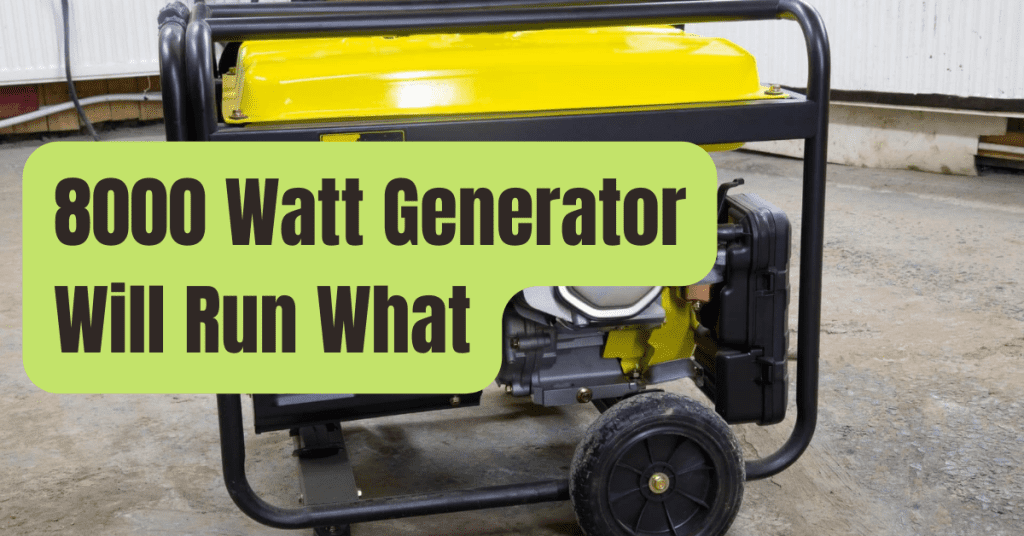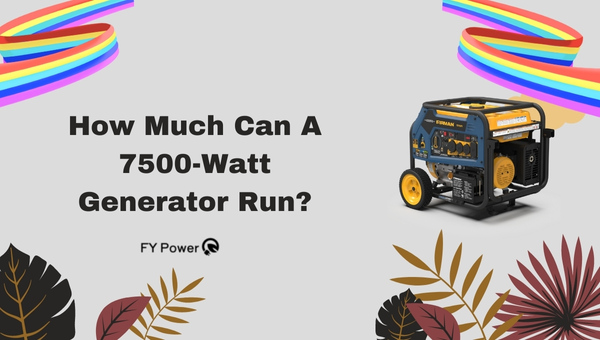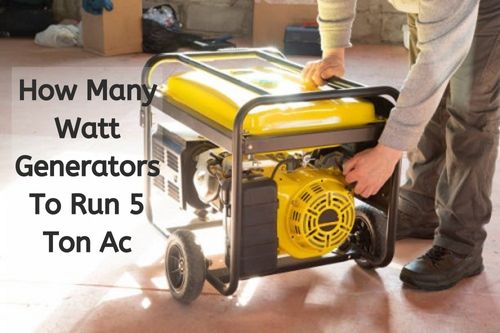How Many Appliances Can I Run On A Generator

Power outages, whether from severe weather or unexpected grid failures, are an increasing reality for many homeowners. Understanding how to keep essential appliances running during these times is crucial, and often leads to the question: How many appliances can I safely run on a generator?
The answer, as many homeowners quickly discover, isn't a simple number. The number depends on the generator's wattage capacity, the starting and running wattage of each appliance, and careful power management to avoid overloading the system.
Understanding Generator Wattage
The most critical factor is the wattage your generator can produce. Generators are rated by both starting wattage (also called peak wattage) and running wattage (also called rated wattage). Starting wattage is the surge of power needed to start an appliance, particularly those with motors, like refrigerators or air conditioners.
Running wattage is the continuous power required to keep the appliance operating once it's started. Always ensure your generator's running wattage is sufficient to handle the combined running wattage of all appliances you intend to use simultaneously.
Calculating Your Power Needs
Every appliance has a wattage rating, usually found on a sticker on the appliance itself or in the owner's manual. For example, a refrigerator might have a starting wattage of 1200 watts and a running wattage of 200 watts. A microwave could have a running wattage of 1000 watts.
Creating a list of appliances you want to power during an outage and noting their starting and running wattage is essential. Prioritize needs and remember to consider appliances that cycle on and off, such as refrigerators, which may require a power surge unexpectedly.
Common Appliances and Their Wattage
Here are some common appliances and their typical wattage ranges:
- Refrigerator: Starting 1200-2200 watts, Running 200-400 watts
- Microwave: 600-1500 watts
- Window Air Conditioner: Starting 1500-3000 watts, Running 500-1500 watts
- Lights (LED): 5-20 watts per bulb
- Television: 50-200 watts
- Laptop: 50-100 watts
These figures are estimates. Always refer to the specific appliance's rating plate for accurate information.
Avoiding Overload
Overloading a generator is a serious hazard and can damage both the generator and the appliances connected to it. Most generators have a circuit breaker that will trip if overloaded.
To prevent overload, start appliances with the highest starting wattage first, then add others gradually. Consider using a wattage meter to monitor power consumption in real-time. Unplug appliances when not in use.
Generator Size Considerations
Generators come in various sizes, from small portable units suitable for powering a few essential items to larger, more powerful units capable of running entire homes. A small portable generator (1000-2000 watts) might only be able to handle a refrigerator and a few lights.
A mid-sized generator (3000-5000 watts) could power a refrigerator, lights, and maybe a small window air conditioner or microwave. A larger generator (7000 watts or more) is often required for running multiple high-wattage appliances simultaneously, or powering central air conditioning.
Safety First
Always operate a generator in a well-ventilated area to prevent carbon monoxide poisoning. Never run a generator indoors, in a garage, or near windows or doors. Install carbon monoxide detectors in your home and check them regularly.
Follow all manufacturer's instructions for safe operation and maintenance. Use heavy-duty extension cords designed for outdoor use and ensure they are in good condition.
Human-Interest Angle: Preparedness Stories
Sarah Miller, a homeowner in Florida, learned the importance of generator sizing the hard way. "During a hurricane, my small generator could barely keep the refrigerator running," she explains. "I realized I needed a much larger unit to power essential appliances like the well pump and a window AC unit for my elderly mother."
Stories like Sarah's highlight the need for thoughtful planning and proper generator selection. Preparedness saves lives, and understanding your power needs is a critical part of emergency planning.
Conclusion
Determining how many appliances you can run on a generator is a matter of careful calculation and planning. By understanding your generator's capacity, the wattage requirements of your appliances, and practicing safe operating procedures, you can keep essential items running during a power outage and ensure the safety of your home and family.
Consider consulting with a qualified electrician for personalized advice on generator sizing and installation. Taking the time to properly assess your power needs can provide peace of mind during times of crisis.

